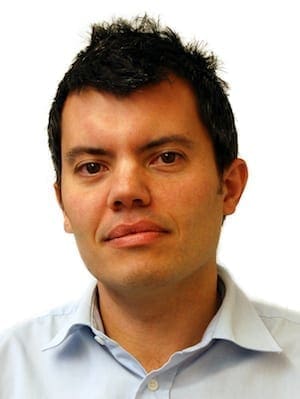Christians in Mosul have been ordered to leave the city or face execution by Islamic State (IS, formerly ISIS) militants.
As a result, Mosul is empty of Christians for the first time in the country’s history.
According to Middle East Concern, an association of Christian agencies seeking human rights for Christian communities in the Middle East and North Africa, IS summoned Christian leaders to a meeting on July 17 to notify them that Islamic rules (Sharia law) would be applied to non-Muslims—including the imposition of “jizya,” a protection tax.
When Christian leaders failed to attend, IS announced that remaining Christians should leave Mosul or face execution by July 19.
Andrew White, the Anglican chaplain of St. George’s Church in Iraq and also known as the Vicar of Baghdad, shared the news, making an urgent plea for prayer via his Facebook page.
Even before that, observers believed that as few as 50 Christian families remained in Mosul.
Many had already fled to areas of northern Iraq under Kurdish control. It’s believed that most of the remaining Christians have now left.
“For the first time in the history of Iraq, Mosul is now empty of Christians,” Patriarch Louis Sako, head of the Chaldean Catholic Church in Iraq, told the AFP news agency.
A fact-finding team from Release International (RI)—a partner of Middle East Concern that helps persecuted Christians around the world—has just returned from a trip to northern Iraq to investigate the plight of Christians caught up in the conflict.
The team interviewed Christians who have fled from the IS militants, having been driven out in the past by repeated waves of violence and persecution.
The team also interviewed senior church leaders and politicians from the autonomous region of Kurdistan. The picture that emerged was “harrowing,” RI stated.
Most of the Christians they interviewed despaired of ever returning to their country.
Many church leaders could see no future for Christians in Iraq, fearing that within a generation Christianity would be extinct in the land.
The Chaldean Archbishop of Erbil, Bashar M. Warda, told RI, “Christians have lost their trust in the land and in the future. Since 2003 [the allied invasion of Iraq], two-thirds of the Christians have left the country. June was the first month in 1,600 years in which Mosul did not celebrate any Mass.”
“The attack on Christians has been immense. In the future, I imagine Iraq becoming a country where you have many Christian sites, just for tourism—due to the families that are leaving,” Warda said.
IS has now declared a Caliphate in Iraq and Syria and has become an umbrella group for various armed factions willing to pledge allegiance to the self-proclaimed Caliph, Abu Bakr al-Baghdadi.
“The terror is palpable,” said RI chief executive Paul Robinson, “and that fear is driving Christians from their homes. If IS behave true to their form in Syria, then the Christians who remain in Iraq under their control can expect to live a life of subjugation under their brutally enforced variation of Islamic law and to have to pay for the privilege.”
For many Christians, IS’ persecution is seen as a continuation of an ongoing experience.
But for many, being driven from their homes, yet again, it is the end of the line. All they want is to get out of Iraq.
One distinct ray of hope is the affirmation by Kurdish leaders that Christian refugees are being offered a safe haven in Kurdistan and will be welcomed, protected and free to practice their religion.
“Kurdistan is the only country in the Middle East where you can see the numbers of Christians rising. We have no persecution of Christians and we don’t have the terrorist groups here,” Kurdish religious affairs spokesman Mariwan Naqshbandi told RI.
The Kurdish government offered two reasons for their open-handed policy toward Christians:
1. They know what it is like to be persecuted, having been targeted by Saddam Hussein with chemical weapons.
2. Although most are Sunni Muslim, they say they value their nationality—for which they have fought for many years—above their religious identity.
Christians in Kurdistan do face restrictions, and those who converted from Islam especially remain at risk.
Christians have been persecuted under the Kurds in Syria and currently make up just 2 percent of the Kurdish population.
 Paul Hobson is the news editor of The Baptist Times, the online newspaper of The Baptist Union of Great Britain. A longer version of this news article first appeared on The Baptist Times website and is used with permission. You can follow the Baptist Times on Twitter @BaptistTimes and the union @baptistuniongb.
Paul Hobson is the news editor of The Baptist Times, the online newspaper of The Baptist Union of Great Britain. A longer version of this news article first appeared on The Baptist Times website and is used with permission. You can follow the Baptist Times on Twitter @BaptistTimes and the union @baptistuniongb.
Paul Hobson is editor of The Baptist Times of Great Britain, the online newspaper of the Baptist Union of Great Britain.

